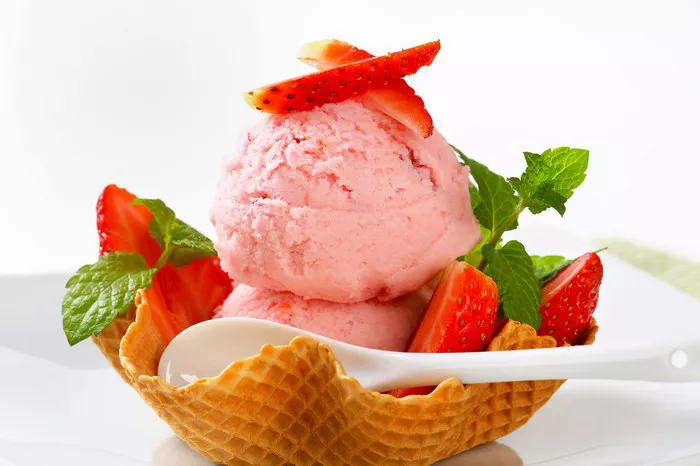In the realm of frozen delights, nitrogen ice cream has emerged as a culinary marvel, captivating both taste buds and imaginations with its unique production process and creamy texture. As this trend continues to gain momentum, entrepreneurs are increasingly eyeing nitrogen ice cream franchises as lucrative business opportunities. However, before delving into the world of sub-zero scoops, it’s essential to understand the dynamics of nitrogen ice cream franchise cost.
Understanding the Nitrogen Ice Cream Phenomenon
Nitrogen ice cream, also known as cryogenic ice cream, distinguishes itself through its flash-freezing process using liquid nitrogen. This technique results in smaller ice crystals and a smoother texture, offering a heightened sensory experience for ice cream enthusiasts. The allure of this innovative dessert has led to a surge in demand, prompting the proliferation of nitrogen ice cream shops worldwide.
Deciphering the Franchise Model
For aspiring entrepreneurs seeking to capitalize on the nitrogen ice cream craze, the franchise model presents an appealing avenue for entry into the market. Franchising offers the advantage of leveraging a proven business concept, established brand recognition, and ongoing support from the franchisor. However, prospective franchisees must carefully evaluate the associated costs to determine the feasibility and profitability of such an endeavor, starting with the nitrogen ice cream franchise cost.
Nitrogen Ice Cream Franchise Cost Breakdown
The nitrogen ice cream franchise cost encompasses various expenses, each playing a crucial role in the establishment and operation of the business. At the forefront is the initial franchise fee, which grants the franchisee the rights to utilize the franchisor’s brand name, trademarks, and business model. This fee typically ranges from $25,000 to $50,000, depending on the prestige and popularity of the franchise.
Beyond the initial fee, franchisees must allocate resources for the requisite equipment and machinery essential for nitrogen ice cream production. This includes nitrogen tanks, specialized mixers, and storage units tailored to accommodate the unique demands of the flash-freezing process. The cost of equipment can vary significantly based on factors such as capacity, quality, and supplier, with estimates ranging from $20,000 to $50,000 or more.
Moreover, prospective franchisees must account for expenses associated with site selection, lease agreements, and store build-out. Securing a prime location with high foot traffic is paramount to the success of a nitrogen ice cream franchise, albeit it may entail higher rental costs. Additionally, outfitting the store with furnishings, signage, and décor consistent with the franchisor’s brand image requires a considerable upfront investment, typically ranging from $50,000 to $100,000.
Navigating Operational Costs
Once the nitrogen ice cream franchise is up and running, ongoing operational expenses come into play, encompassing a myriad of elements essential for day-to-day business activities. Chief among these is the cost of ingredients and raw materials necessary for crafting the delectable frozen treats. While nitrogen ice cream boasts a simpler recipe compared to traditional varieties, premium-quality ingredients and flavorings can contribute to higher expenses.
Furthermore, labor costs represent a significant component of operational expenditures, encompassing wages, benefits, and training expenses for staff members. Given the labor-intensive nature of nitrogen ice cream production and customer service, franchisees must budget accordingly to ensure adequate staffing levels while maintaining profitability.
Marketing and advertising expenses are another essential consideration for nitrogen ice cream franchises, particularly in competitive markets where brand visibility is crucial. Franchisees are typically required to contribute to a collective marketing fund or adhere to prescribed marketing strategies outlined by the franchisor. These expenses can vary based on the scale and scope of promotional activities but generally range from 2% to 5% of gross sales.
Additionally, ongoing royalties or royalty-like fees represent a recurring financial obligation for franchisees, serving as compensation for continued access to the franchisor’s brand name, support services, and proprietary systems. Royalty fees are typically calculated as a percentage of gross sales, ranging from 4% to 8%, although variations may exist based on the terms of the franchise agreement.
Mitigating Risks and Maximizing Returns
While the nitrogen ice cream franchise cost may seem daunting, strategic planning and prudent financial management can mitigate risks and pave the way for long-term success. Conducting thorough market research to identify viable locations and target demographics is essential for optimizing profitability and minimizing operational challenges.
Moreover, fostering strong relationships with suppliers and vendors can yield cost-saving opportunities through bulk purchasing, negotiated discounts, and favorable payment terms. Implementing efficient operational processes and leveraging technology where applicable can also enhance productivity and streamline workflows, ultimately driving down overhead costs.
Furthermore, actively engaging with the local community through events, sponsorships, and partnerships can cultivate brand loyalty and generate positive word-of-mouth publicity, thereby reducing the reliance on traditional advertising channels.
Conclusion
In conclusion, the allure of nitrogen ice cream franchises holds undeniable appeal for entrepreneurs eager to capitalize on the burgeoning demand for innovative frozen desserts. However, navigating the intricacies of the nitrogen ice cream franchise cost requires careful consideration of both upfront investments and ongoing operational expenses. By conducting comprehensive due diligence, implementing sound business strategies, and fostering a commitment to quality and customer satisfaction, aspiring franchisees can position themselves for success in this exciting and dynamic industry.


